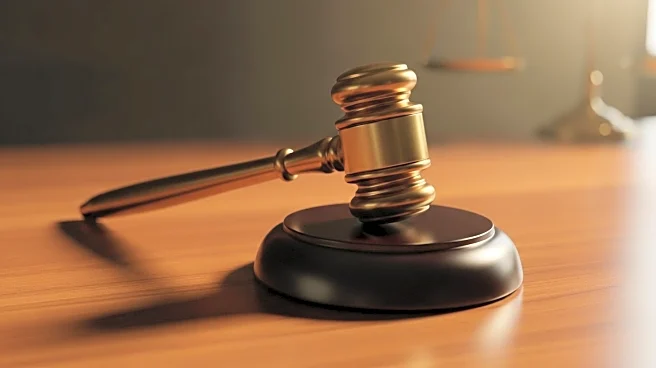What is the story about?
What's Happening?
Federal magistrate judge Zia M. Faruqui has expressed strong disapproval of the Trump administration's approach to law enforcement in Washington D.C., particularly in the case of Torez Riley, a Black man charged with unlawful possession of a firearm. Riley was stopped and searched by law enforcement while on his way to a grocery store, an action Judge Faruqui deemed unconstitutional. The judge criticized the 'charge first, ask questions later' mentality, highlighting the erosion of constitutional rights under the current administration. The Department of Justice moved to dismiss the charges against Riley, acknowledging the unconstitutional nature of his detention.
Why It's Important?
Judge Faruqui's remarks underscore concerns about civil liberties and the rule of law under the Trump administration. The case highlights issues of racial profiling and the potential misuse of law enforcement powers, raising questions about the protection of constitutional rights. The judge's criticism reflects broader concerns about the administration's impact on legal norms and the justice system. This case serves as a reminder of the importance of judicial oversight in safeguarding individual rights and maintaining the integrity of legal processes.
What's Next?
The dismissal of charges against Torez Riley may prompt further scrutiny of law enforcement practices in Washington D.C. and other areas under the Trump administration. Legal experts and civil rights advocates may call for reforms to prevent unconstitutional searches and detentions. The case could lead to increased advocacy for racial justice and the protection of civil liberties, with potential implications for future policy decisions. Judge Faruqui's comments may inspire other judges to speak out against perceived injustices, influencing the broader legal landscape.
Beyond the Headlines
The case raises ethical questions about the balance between security and civil liberties, particularly in the context of racial profiling. It highlights the role of the judiciary in challenging executive actions that may infringe on constitutional rights. The situation also reflects broader societal debates about systemic racism and the need for accountability in law enforcement. As discussions on these issues continue, the case may contribute to ongoing efforts to address racial disparities and promote justice reform.














